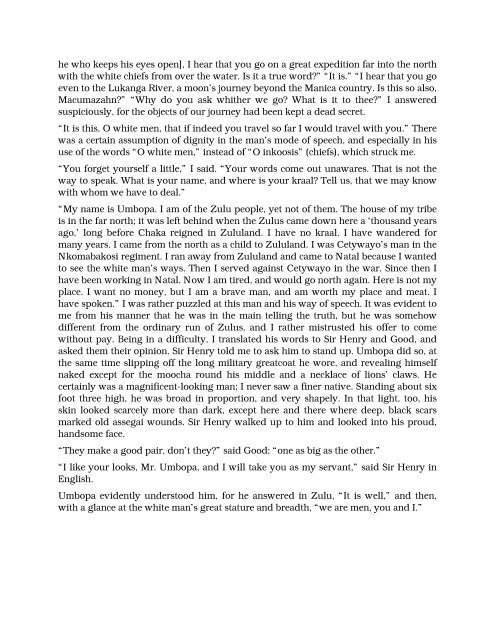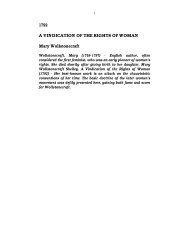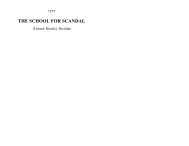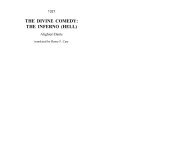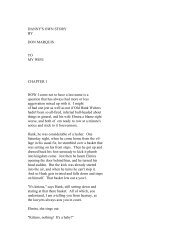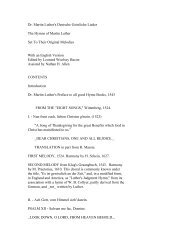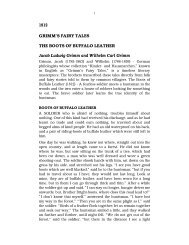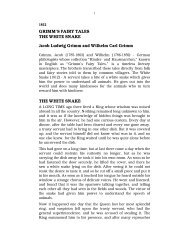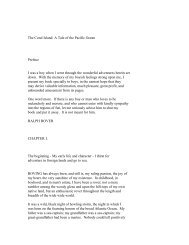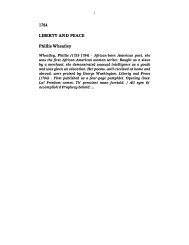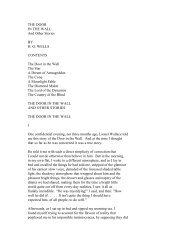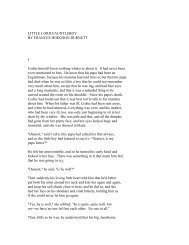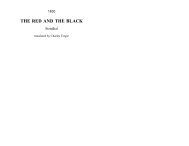1885 KING SOLOMON'S MINES H. Rider Haggard - Pink Monkey
1885 KING SOLOMON'S MINES H. Rider Haggard - Pink Monkey
1885 KING SOLOMON'S MINES H. Rider Haggard - Pink Monkey
You also want an ePaper? Increase the reach of your titles
YUMPU automatically turns print PDFs into web optimized ePapers that Google loves.
he who keeps his eyes open], I hear that you go on a great expedition far into the north<br />
with the white chiefs from over the water. Is it a true word?” “It is.” “I hear that you go<br />
even to the Lukanga River, a moon’s journey beyond the Manica country. Is this so also,<br />
Macumazahn?” “Why do you ask whither we go? What is it to thee?” I answered<br />
suspiciously, for the objects of our journey had been kept a dead secret.<br />
“It is this, O white men, that if indeed you travel so far I would travel with you.” There<br />
was a certain assumption of dignity in the man’s mode of speech, and especially in his<br />
use of the words “O white men,” instead of “O inkoosis” (chiefs), which struck me.<br />
“You forget yourself a little,” I said. “Your words come out unawares. That is not the<br />
way to speak. What is your name, and where is your kraal? Tell us, that we may know<br />
with whom we have to deal.”<br />
“My name is Umbopa. I am of the Zulu people, yet not of them. The house of my tribe<br />
is in the far north; it was left behind when the Zulus came down here a ‘thousand years<br />
ago,’ long before Chaka reigned in Zululand. I have no kraal. I have wandered for<br />
many years. I came from the north as a child to Zululand. I was Cetywayo’s man in the<br />
Nkomabakosi regiment. I ran away from Zululand and came to Natal because I wanted<br />
to see the white man’s ways. Then I served against Cetywayo in the war. Since then I<br />
have been working in Natal. Now I am tired, and would go north again. Here is not my<br />
place. I want no money, but I am a brave man, and am worth my place and meat. I<br />
have spoken.” I was rather puzzled at this man and his way of speech. It was evident to<br />
me from his manner that he was in the main telling the truth, but he was somehow<br />
different from the ordinary run of Zulus, and I rather mistrusted his offer to come<br />
without pay. Being in a difficulty, I translated his words to Sir Henry and Good, and<br />
asked them their opinion. Sir Henry told me to ask him to stand up. Umbopa did so, at<br />
the same time slipping off the long military greatcoat he wore, and revealing himself<br />
naked except for the moocha round his middle and a necklace of lions’ claws. He<br />
certainly was a magnificent-looking man; I never saw a finer native. Standing about six<br />
foot three high, he was broad in proportion, and very shapely. In that light, too, his<br />
skin looked scarcely more than dark, except here and there where deep, black scars<br />
marked old assegai wounds. Sir Henry walked up to him and looked into his proud,<br />
handsome face.<br />
“They make a good pair, don’t they?” said Good; “one as big as the other.”<br />
“I like your looks, Mr. Umbopa, and I will take you as my servant,” said Sir Henry in<br />
English.<br />
Umbopa evidently understood him, for he answered in Zulu, “It is well,” and then,<br />
with a glance at the white man’s great stature and breadth, “we are men, you and I.”


